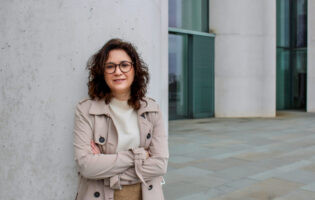Resolving relations with Kosovo is a key obstacle to Serbia joining the EU

Alexander Wochnik
Alexander Wochnik holds a PhD in Politics and International Relations from Aston University, UK. His research focuses on German foreign policy, Polish foreign policy, and Polish-German relations. He was a Harry & Helen Gray/AICGS Reconciliation Fellow in the summer of 2012; a Japanese Society for the Promotion of Sciences (JSPS) Postdoctoral Researcher at Hitotsubashi University in Tokyo in 2014; a Research Fellow at Manchester University, UK (2013-14); and in 2016 a DAAD/AICGS research fellow assessing German multilateralism through security relationships: German-U.S. Cooperation in Afghanistan. Alexander has published in the international peer-reviewed journals Geoforum, German Politics, West European Politics, and East European Politics and Societies.
He is a 2016-2017 participant in AICGS’ project “A German-American Dialogue of the Next Generation: Global Responsibility, Joint Engagement,” sponsored by the Transatlantik-Programm der Bundesrepublik Deutschland aus Mitteln des European Recovery Program (ERP) des Bundesministeriums für Wirtschaft und Energie (BMWi).

Jelena Obradovic-Wochnik
Aston University (UK)
Dr. Jelena Obradovic-Wochnik was a Harry & Helen Gray/AICGS Reconciliation Fellow in 2014. While at AICGS, she explored Germany’s role in reconciling the Western Balkans. The project focused on Germany’s foreign policy, economic development, aid, and German political foundations in Bosnia, Serbia, and Kosovo.
Germany has been a key player and one of the largest bilateral donors in the reconstruction and redevelopment of post-conflict Western Balkans. Its strategy for the region has included a number of economic aid and redevelopment packages, peacekeeping, and donations for community projects. This project explores the extent to which Germany’s involvement is aimed at reconciliation in this region. It is argued that Germany’s prioritization of economic redevelopment is a part of an implicit reconciliation strategy, aimed at stabilizing the region but without explicitly being seen to do so. The project will explore Germany’s recent historical and political links with the Western Balkans, noting the importance and symbolism of Bosnia and Kosovo for its foreign policy. The project pays particular attention to Germany’s economic and aid initiatives, and the involvement of German political foundations as some of the key donors for reconciliation projects in this region. Overall, this project explores how Germany’s reconciliation policies for the Balkans are operationalized at two levels—the macro level of foreign policy and engagement with national governments, and the micro level of civil society.
Dr. Obradovic-Wochnik is a lecturer in Politics at Aston University, Birmingham, United Kingdom. Her work focuses on transitional justice, reconciliation, and post-conflict transitions in Serbia and Kosovo. She has held visiting research fellowships at the European Union Institute for Security Studies, Paris; the University of Helsinki; and the Center for European Studies at Harvard University.
An excerpt from the original publication with the London School of Economics:
“Serbia was awarded EU candidacy status at the beginning of this year. Jelena Obradovic-Wochnik and Alexander Wochnik write that while recognition of Kosovo’s independence is not a formal requirement for Serbia’s membership of the EU, the ruling Serbian Renewal Party has used the Kosovo issue as a way to gain support among the country’s conservative voters. It may be a difficult to task to balance Serbia’s EU ambitions against its commitment to Kosovo.”









